

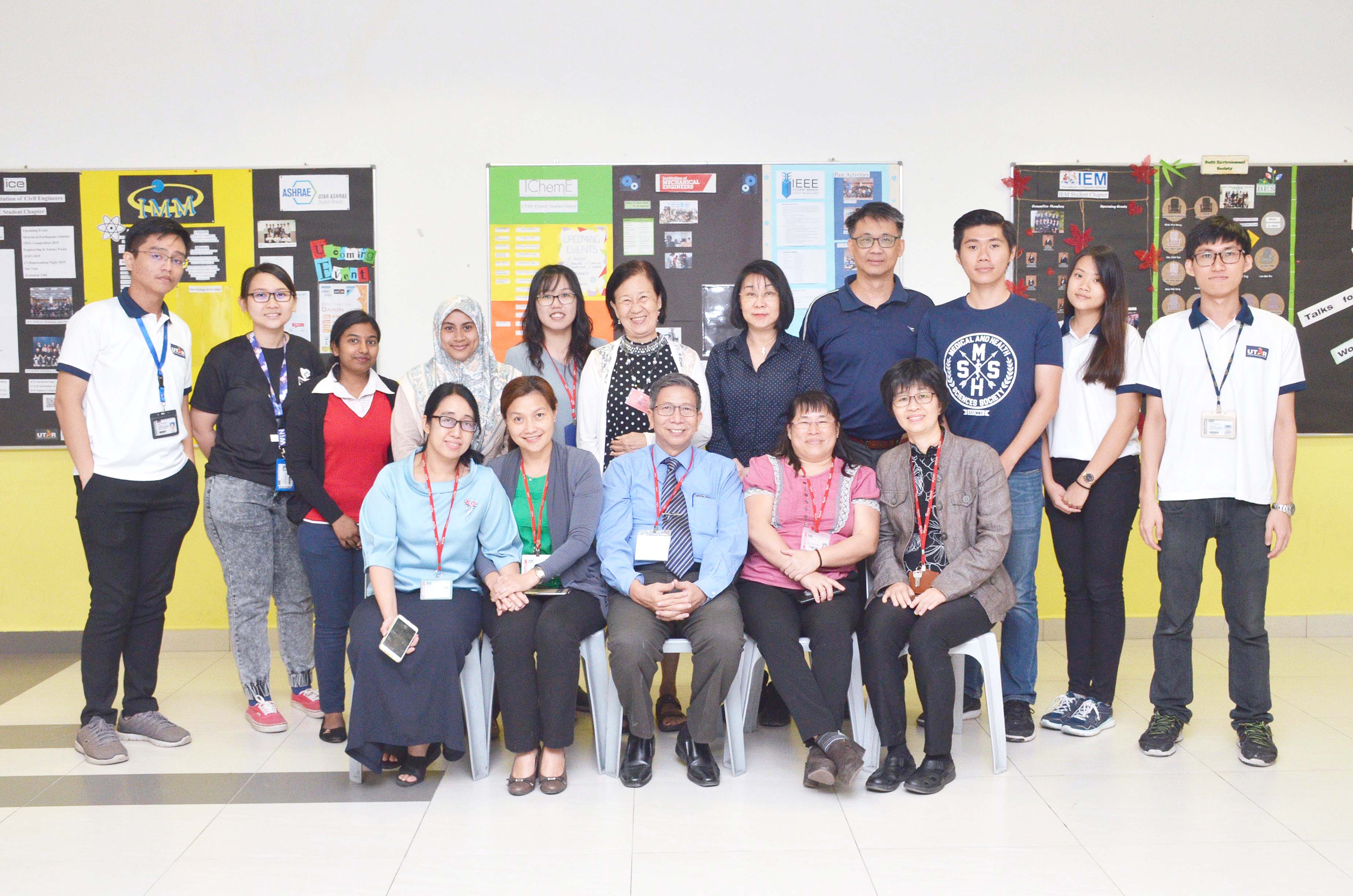
Front row, second from left: FMHS Head of Department of Nursing Liew Siew Fun and Dr Thaw with the participants
The Centre for Research in Traditional Chinese Medicine organised a workshop on Polypharmacy and methods to overcome problems concerning medication errors among the elderly at UTAR Sungai Long Campus on 22 January 2019.
The workshop aimed to give an overview of the results of UTARSRF study on Polypharmacy and associated problems encountered among institutionalised elderly within the Klang Valley. Besides, it aimed to assess knowledge on Polypharmacy and the risks associated with inappropriate medication among the participants, in particular, the caregivers from Assisted Living Facilities (ALFs). On top of that, the workshop also focused on introducing the standard method and tools that can be applied to overcome the risks of medication errors associated with Polypharmacy among the elderly, identify the problems concerning Polypharmacy at ALF and find a workable solution to overcome the risk of medication errors.
Invited to be the speakers were Faculty of Medicine and Health Sciences (FMHS) Department of Pre-clinical Sciences Clinical Assoc Prof Dr Thaw Zin and Lecturer Lan Yen Min.
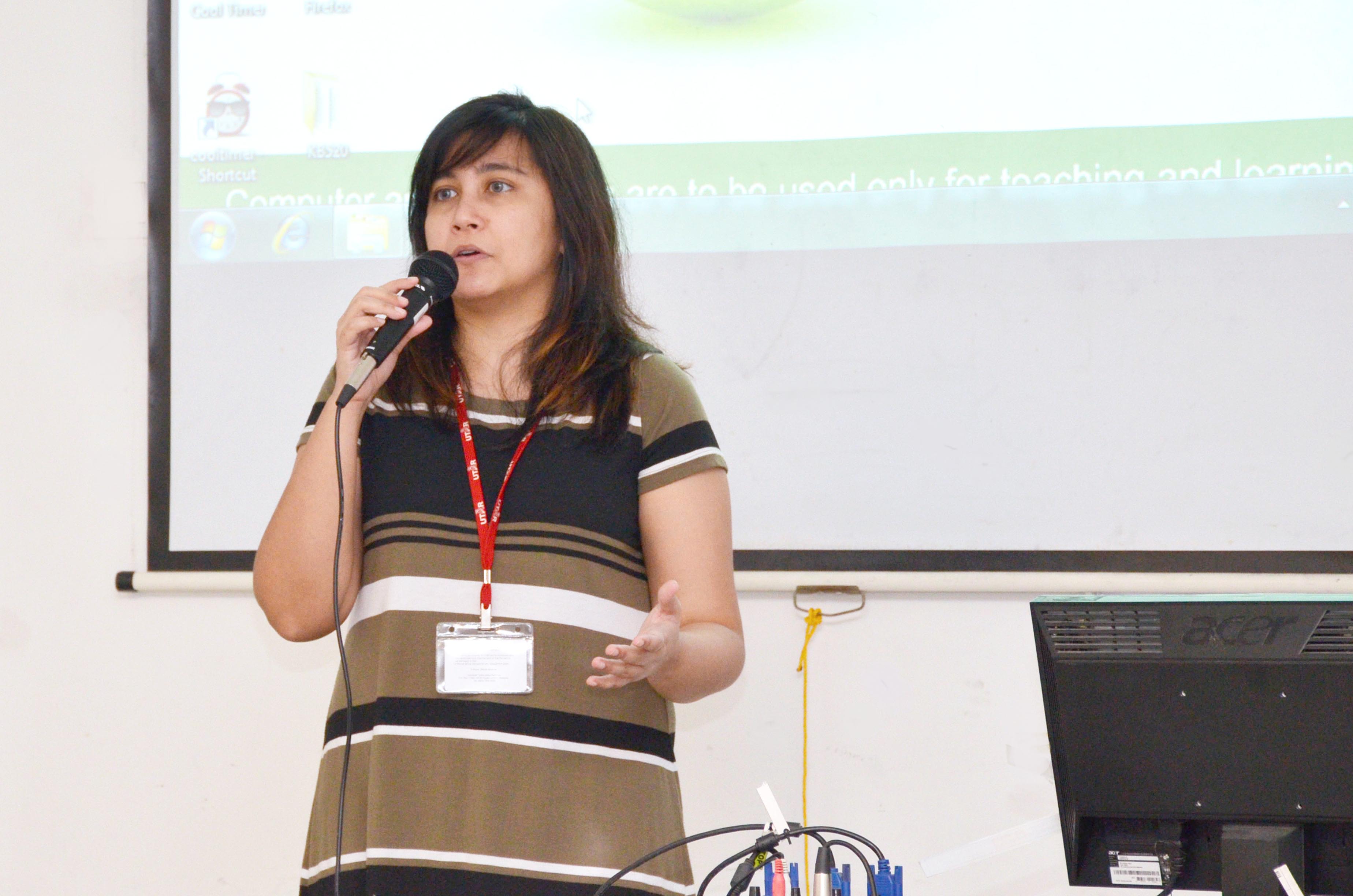
Dr Nadia
In her opening remark, FMHS Lecturer Dr Nadia binti Mohamad Hatta said, “This is the fourth elderly workshop series conducted by us. The first workshop was on nutrition, followed by muscle strength and cognitive, and affective disorders. I hope today’s workshop would be a beneficial one because it involves the elderly in your home and others. The purpose of the visitation to the nursing homes is to assist with the transition and make it a better place for the elderly.” Meanwhile, she also thanked the participants for attending the workshop.
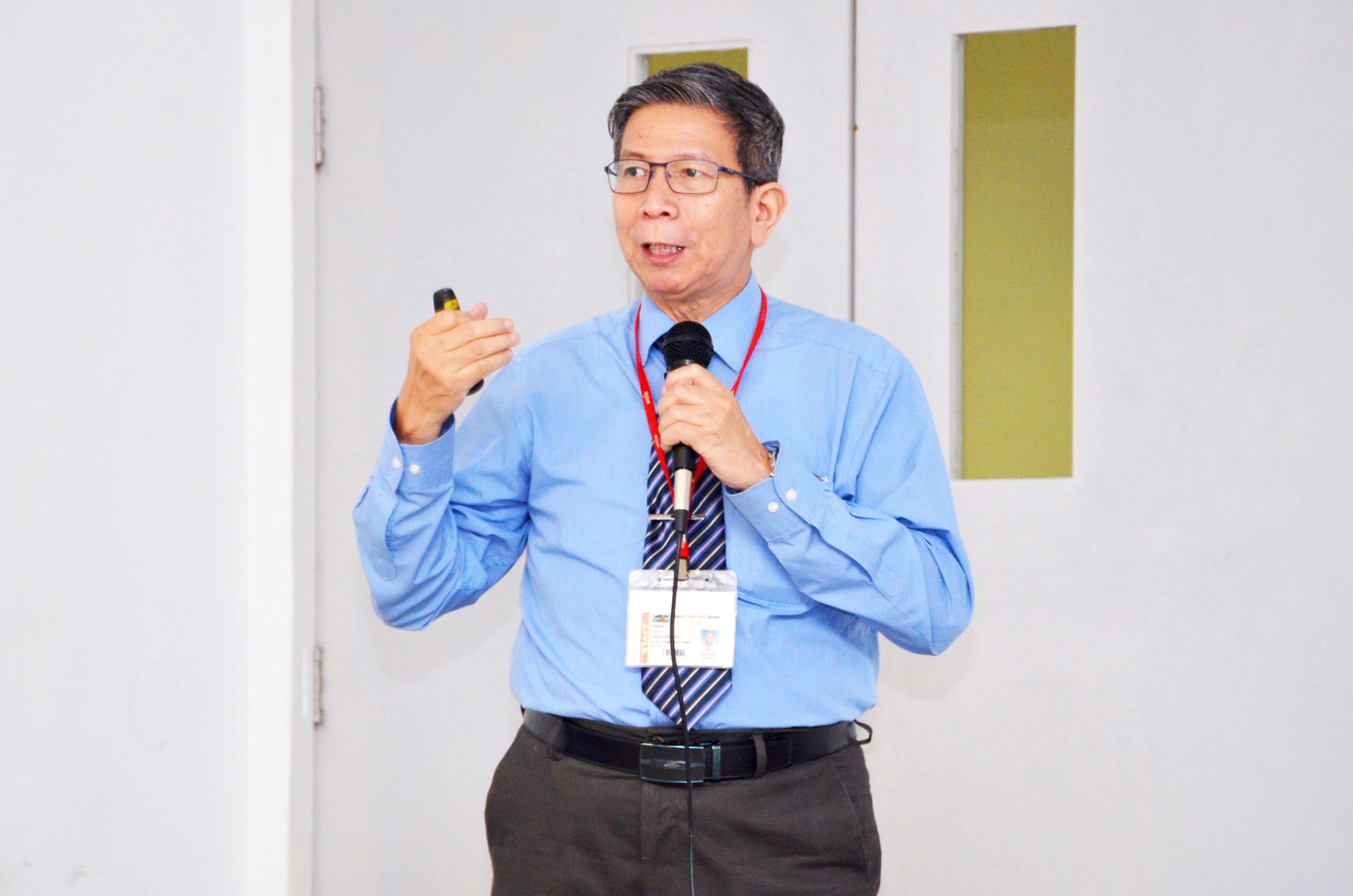
Dr Thaw sharing the importance of managing medications properly
“The population of elderly people is increasing every year. The concept of active ageing is aimed at elderly people to enhance their physical and mental health. It is also to enable them to be less dependent and contribute better to the societal life. We want the elderly not to just live longer but to live better. Elderly people often feel that they need medicines and they want physicians and healthcare providers to prescribe them. However, long waiting queue, short visits and so on led to self-medication and alternative therapies. The elderly people think that non-prescribed OTC drugs, herbal and nutritional supplements are safe to consume; with multiple comorbidities not differentiated between adverse drug effects and disease symptoms,” said Dr Thaw Zin.
He then continued, “Elderly people are more prone to disease and disability. This will affect their daily activities; they need assistance, causing them to feel depressed and isolated. Medications that are improperly managed as well as medication errors are common in the Assisted Living Residences (ALR) because most of the ALRs are looked after by caretakers rather than trained nurses and some of them are self-medicated without proper supervision.” Meanwhile, he also talked about the risk factors of adverse drug reactions, simple steps for medication administration and the proper way to store the medicines.
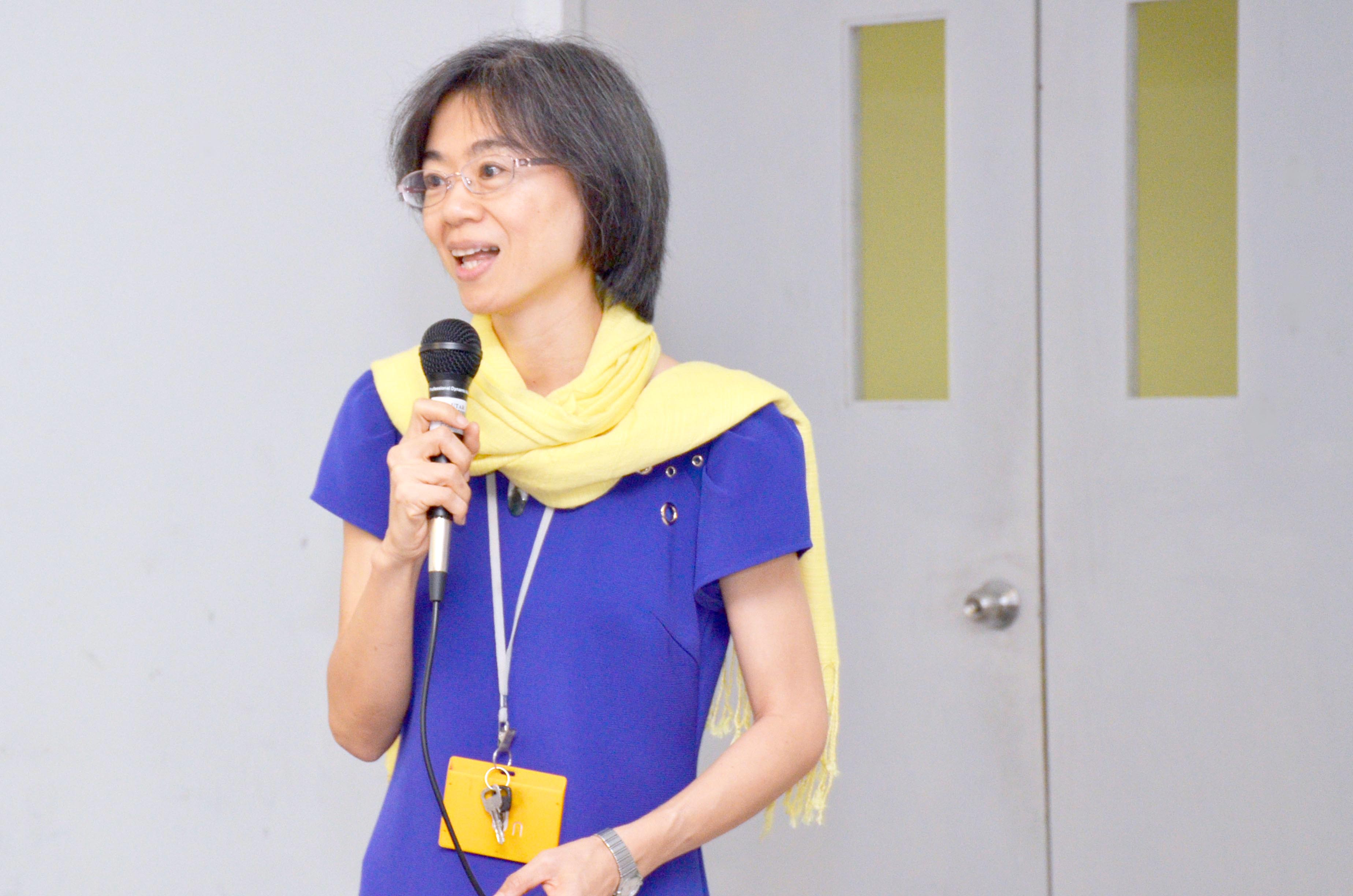
Lan introducing Chinese medicine and herbs to the participants
Lan said, “Chinese medicine and herbs are actually different. Not all types of grass (herbs) belongs to Chinese medicine. Some of the herbs can be used to cure cancer, but that does not mean it can help to prevent cancer if you are physically healthy. For an example, Fructus Swietenia Macrophylla (向天果). Herbal tea is not suitable for the elderly as it will weaken their digestive function in the body. You are encouraged to bring the elderly to the doctor to find the best solutions for treating their sickness.” Meanwhile, she also explained the suitable medicines for the elderly; ways to consume the Chinese and herbs and what to be aware of when consuming it.
A group activity took place after a tea break. The workshop then ended with an interactive Q&A session and discussion. It was followed by a group photo session.
Speaking at the closing remark, Dr Thaw, hoped that the participants will support to make the homes a better place for the elderly. He also thanked the participants for making the workshop a successful one.
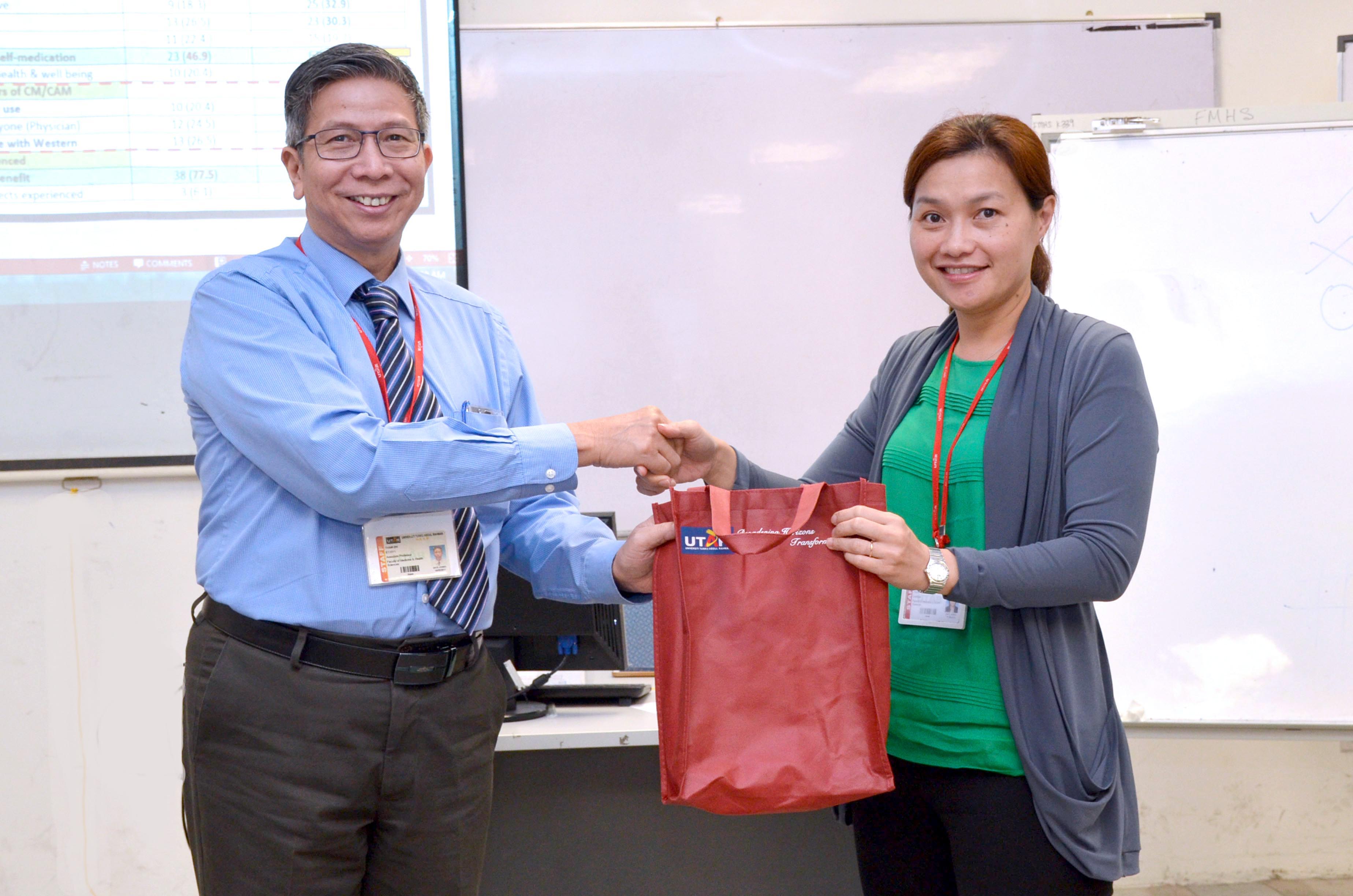
Liew (right) presenting a token of appreciation to Dr Thaw
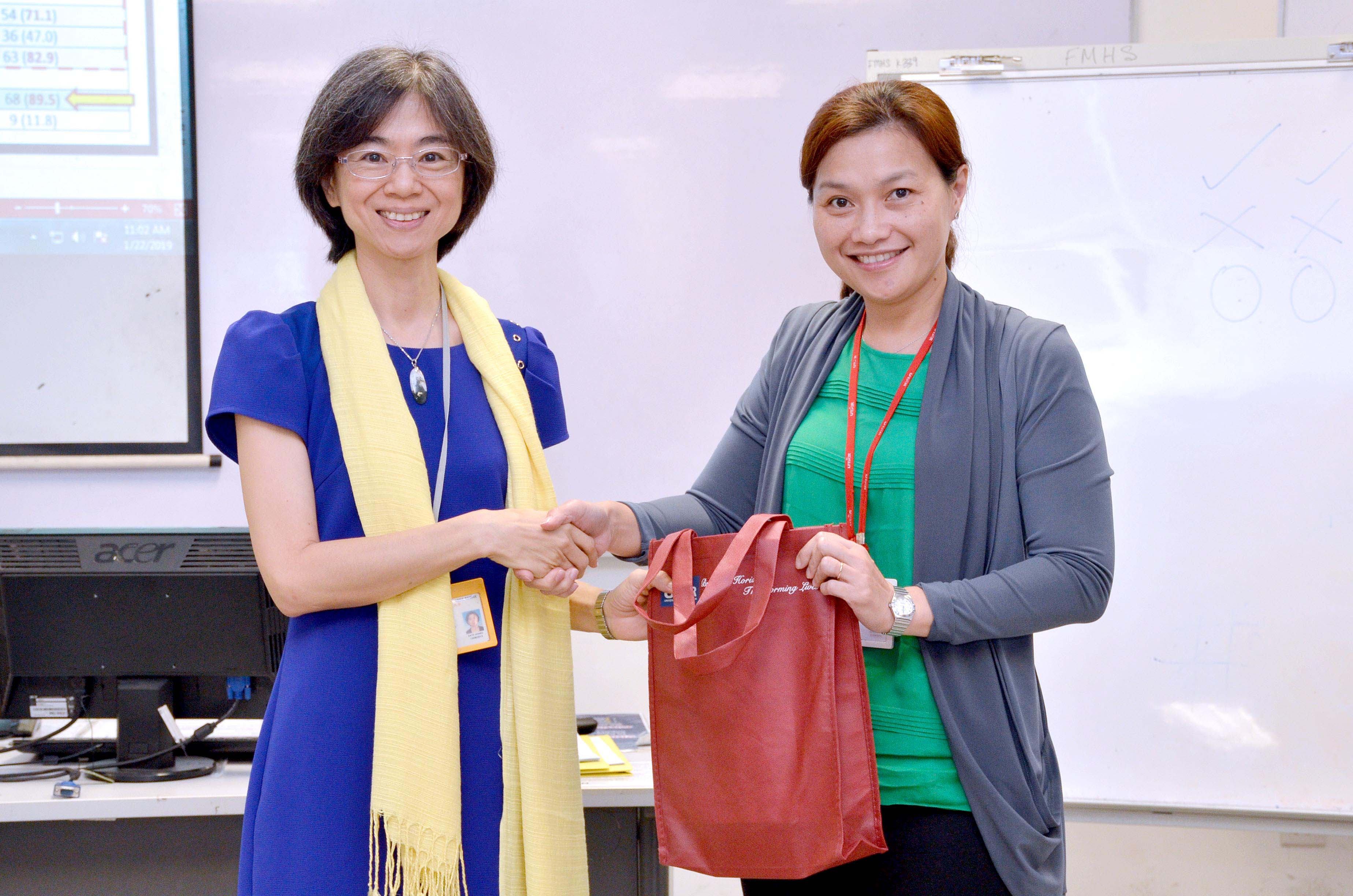
Liew (right) presenting a token of appreciation to Lan
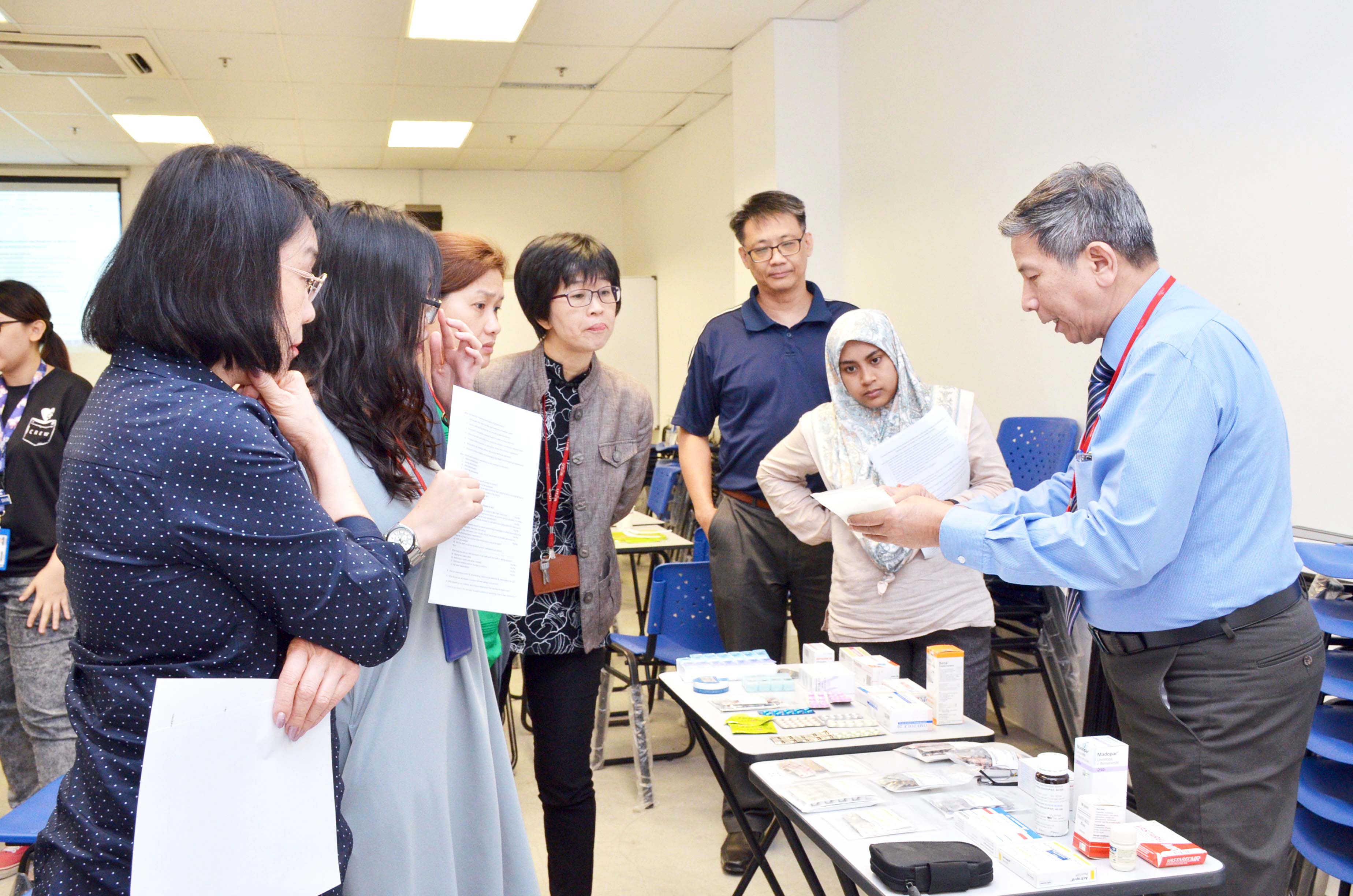
Dr Thaw (most right) explaining the proper way to consume and store the medicines
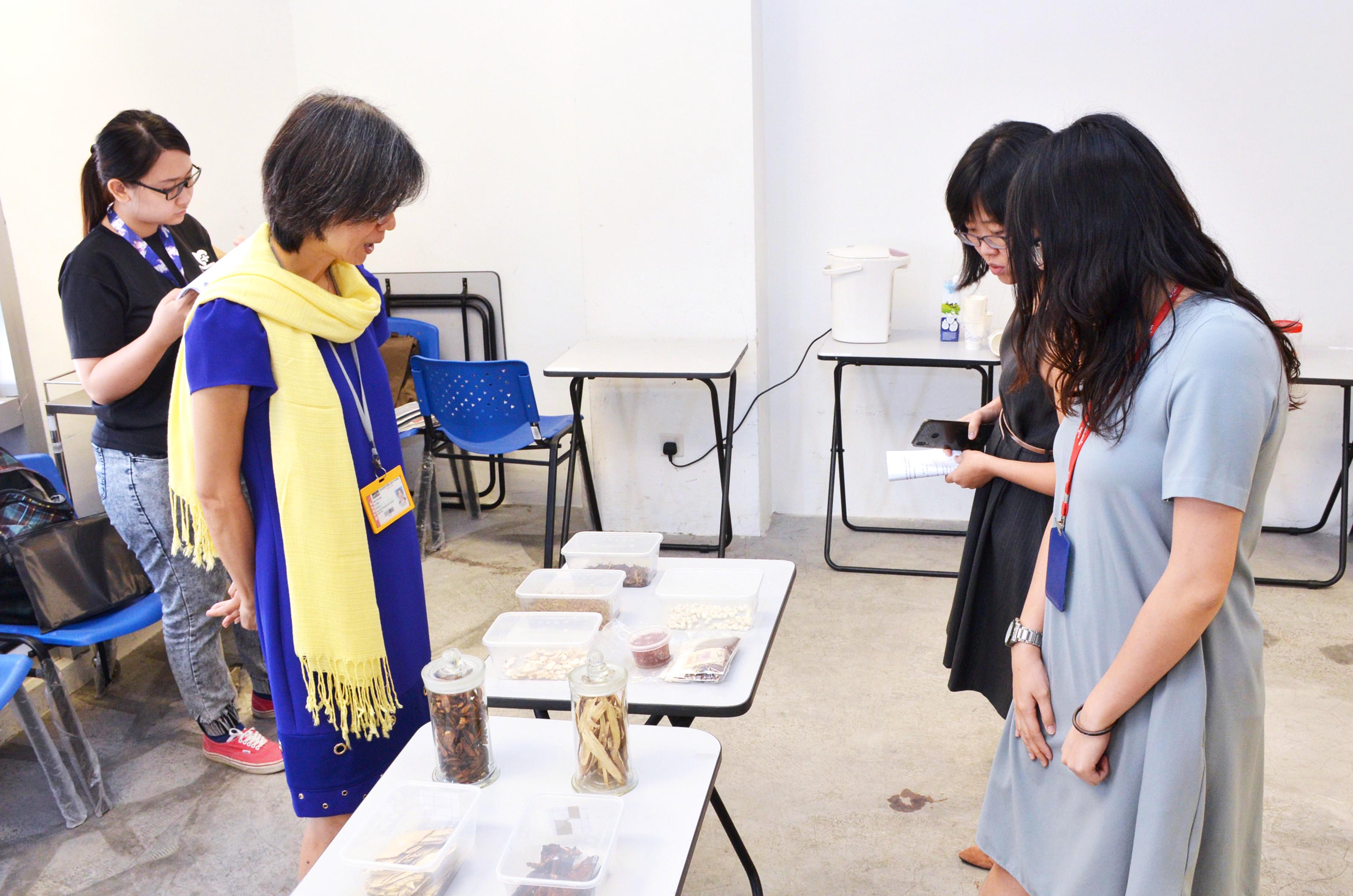
Lan (second from left) answering the enquiries of the participants

Discussion among participants during group activity

Participants presenting their outcomes
© 2019 UNIVERSITI TUNKU ABDUL RAHMAN DU012(A).
Wholly owned by UTAR Education Foundation Co. No. 578227-M LEGAL STATEMENT TERM OF USAGE PRIVACY NOTICE